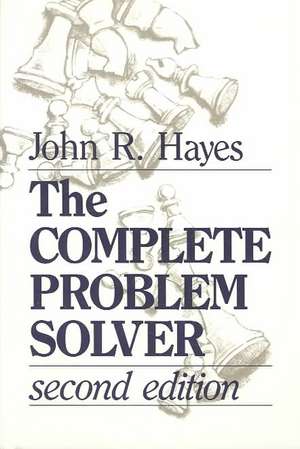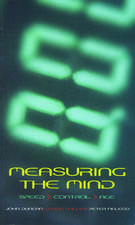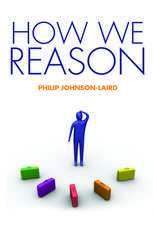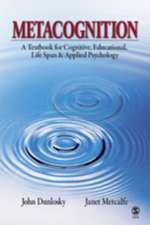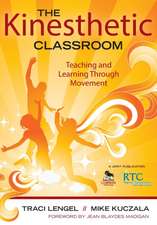The Complete Problem Solver
Autor John R. Hayesen Limba Engleză Paperback – mar 1989
Professor Hayes provides students and professionals with practical, tested methods of defining, representing, and solving problems. Each discussion of the important aspects of human problem solving is supported by the most current research on the psychology problem solving.
The Complete Problem Solver, Second Edition features:
*Valuable learning strategies;
*Decision making methods;
*Discussions of the nature of creativity and invention, and
*A new chapter on writing.
The Complete Problem Solver utilizes numerous examples, diagrams, illustrations, and charts to help any reader become better at problem solving. See the order form for the answer to the problem below.
| Toate formatele și edițiile | Preț | Express |
|---|---|---|
| Paperback (1) | 473.53 lei 6-8 săpt. | +76.77 lei 4-10 zile |
| Taylor & Francis – mar 1989 | 473.53 lei 6-8 săpt. | +76.77 lei 4-10 zile |
| Hardback (1) | 946.97 lei 6-8 săpt. | |
| Taylor & Francis – 22 iul 2016 | 946.97 lei 6-8 săpt. |
Preț: 473.53 lei
Preț vechi: 557.10 lei
-15% Nou
Puncte Express: 710
Preț estimativ în valută:
90.69€ • 93.44$ • 75.97£
90.69€ • 93.44$ • 75.97£
Carte tipărită la comandă
Livrare economică 24 februarie-10 martie
Livrare express 17-23 ianuarie pentru 86.76 lei
Preluare comenzi: 021 569.72.76
Specificații
ISBN-13: 9780805803099
ISBN-10: 0805803092
Pagini: 376
Dimensiuni: 156 x 234 x 25 mm
Greutate: 0.59 kg
Ediția:Revizuită
Editura: Taylor & Francis
Colecția Routledge
Locul publicării:Oxford, United Kingdom
ISBN-10: 0805803092
Pagini: 376
Dimensiuni: 156 x 234 x 25 mm
Greutate: 0.59 kg
Ediția:Revizuită
Editura: Taylor & Francis
Colecția Routledge
Locul publicării:Oxford, United Kingdom
Public țintă
ProfessionalCuprins
Contents. Part I: Problem Solving Theory and Practice.Understanding Problems: The Process of Representation. Writing and Problem Solving. Part II: Memory and Knowledge Acquisition.The Structure of Human Memory. Using Memory Effectively. Learning Strategies. Part III: Decision Making.Getting The Fact Straight: Making Decisions in a Complex World. The Luck of the Draw: Dealing with Chance in Decision Making. Cost-Benefit Analysis. Part IV: Creativity and Invention.Cognitive Processes in Creative Acts. How Social Conditions Affect Creativity.
Recenzii
"...Hayes' style is engaging; he can write not to impress but to teach. Difficult concepts are explained well and concrete examples abound."
—CHOICE
"...I found much to recommended in the book. The writing is clear and to the point, with a pleasant humor. The examples are generally excellent....Hayes's involvement in much problem solving and creativity research makes these chapters particularly interesting."
—Contemporary Psychology
"Both educational and entertaining; this book is a worthwhile acquisition for any library."
—Library Journal
"...everything you've ever wanted to know about the subject."
—The Learning Bulletin
"Dick Hayes has been a pioneer in showing how to use the new insights of cognitive psychology to teach the skills of problem solving. His book, The Complete Problem Solver, is an exceptionally effective guide for anyone wishing to improve his or her problem solving abilities on the basis of sound and proven psychological principles. The reader gets the additional bonus that the book is not only instructive; it is interesting."
—Herbert A. Simon
Carnegie-Mellon University
—CHOICE
"...I found much to recommended in the book. The writing is clear and to the point, with a pleasant humor. The examples are generally excellent....Hayes's involvement in much problem solving and creativity research makes these chapters particularly interesting."
—Contemporary Psychology
"Both educational and entertaining; this book is a worthwhile acquisition for any library."
—Library Journal
"...everything you've ever wanted to know about the subject."
—The Learning Bulletin
"Dick Hayes has been a pioneer in showing how to use the new insights of cognitive psychology to teach the skills of problem solving. His book, The Complete Problem Solver, is an exceptionally effective guide for anyone wishing to improve his or her problem solving abilities on the basis of sound and proven psychological principles. The reader gets the additional bonus that the book is not only instructive; it is interesting."
—Herbert A. Simon
Carnegie-Mellon University
